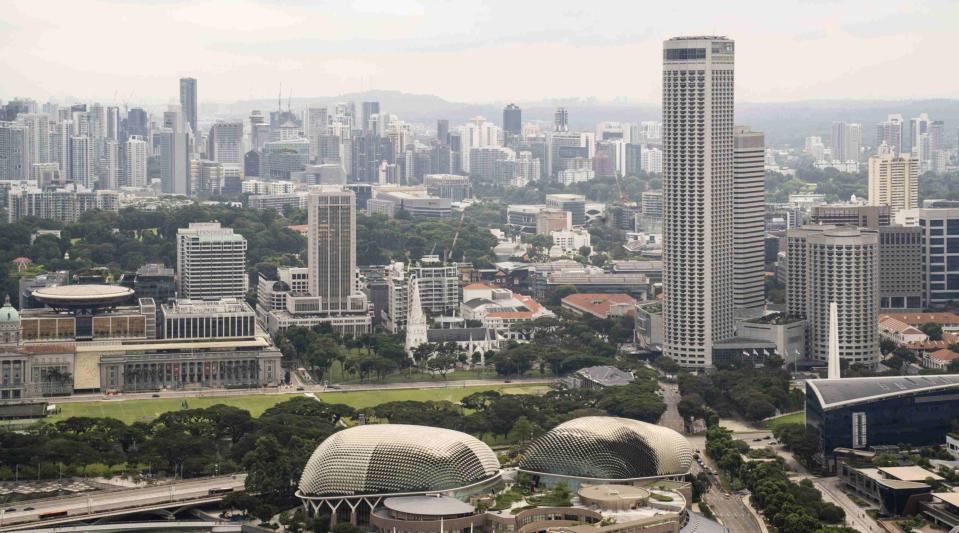MAS launches public consultations on coal phase-out, voluntary code of conduct for ESG rating agencies

MAS will incorporate feedback in the Singapore-Asia taxonomy that will be launched later this year.
The Monetary Authority of Singapore (MAS) has launched a public consultation on the detailed thresholds and criteria for financing the early phase-out of coal-fired power plants under the Singapore-Asia Taxonomy.
MAS, together with industry representatives, will incorporate feedback from the public consultation in the taxonomy, which will be launched later this year, says Indranee Rajah, Minister in the Prime Minister’s Office and Second Minister for Finance and National Development.
“By providing clear definitions on what is green, what is transition and what is neither, the Singapore-Asia Taxonomy aims to catalyse green and transition finance flows to enable the decarbonisation of brown sectors,” says Indranee at the International Capital Markets Association’s (ICMA) 9th Annual Conference of the Principles on June 28.
According to the MAS, these coal-fired power plants must be economically viable, replaced by clean energy with equivalent electricity capacity, phased out by 2040 and not have a total operating duration exceeding 25 years, among other criteria.
The plant owner must also commit to no new development of coal-fired power plants and a transition plan to reach full alignment to 1.5°C by 2030.
Interested parties are invited to submit their comments by July 28.
Formerly referred to as the Singapore Taxonomy, the guidelines were expected to be published in June. Instead, MAS has decided to seek feedback on the additional criteria from financial institutions.
Singapore Green Bond Framework
Meanwhile, the government will update the Singapore Green Bond Framework “to align with the Singapore-Asia Taxonomy for green activities”, says Indranee.
Indranee says the government will explore issuing public sector transition bonds for “suitable projects” that are in line with the transition activities under the taxonomy.
Singapore’s sustainable debt market has grown “healthily” from about US$2 billion ($2.70 billion) in 2018 to more than US$20 billion last year, says Indranee.
The government launched the Singapore Green Bond Framework in 2022, based on ICMA principles, and has committed to issue up to $35 billion of green bonds by 2030. The government issued its first sovereign green bond issuance of $2.4 billion last year, which will be used to expand Singapore’s electric rail network and green its transportation system.
Indranee says the government will be sharing the allocation and expected impact of financing these electric rail projects through a post-issuance green bond report in the coming months.
ESG code of conduct
MAS has also launched public consultation on a voluntary code of conduct for ESG rating and data product providers. The move seeks to establish baseline industry standards to bolster market confidence in the use of ESG ratings and data products while safeguarding against greenwashing risks, says Indranee.
The code aims to elevate the quality, reliability and transparency of ESG ratings and data products in Singapore, she adds.
ESG rating and data product providers will be required to disclose how forward-looking elements are factored into their products. According to Indranee, this will enable financial market participants to better understand the use case of ESG products and provide more accurate market pricing signals with regards to transition risks and opportunities.
MAS says in a June 28 statement that the industry code of conduct has been co-created with ESG rating and data product providers, and modelled closely after the International Organization of Securities Commissions' (IOSCO) recommendations of good practices.
MAS will take a phased and risk-proportionate regulatory approach for ESG rating and data product providers, says Indranee. “It will continue to monitor global regulatory developments before consulting on a more formalised framework in the future.”
See Also:
Click here to stay updated with the Latest Business & Investment News in Singapore
Briefs: Singapore businesses 'unsure', 'pessimistic' on three-year outlook
MAS to dangle sweetener for family offices; banks urged to give better returns on deposits
MAS proposes to increase deposit insurance coverage to $100,000
Get in-depth insights from our expert contributors, and dive into financial and economic trends

 Yahoo Finance
Yahoo Finance 